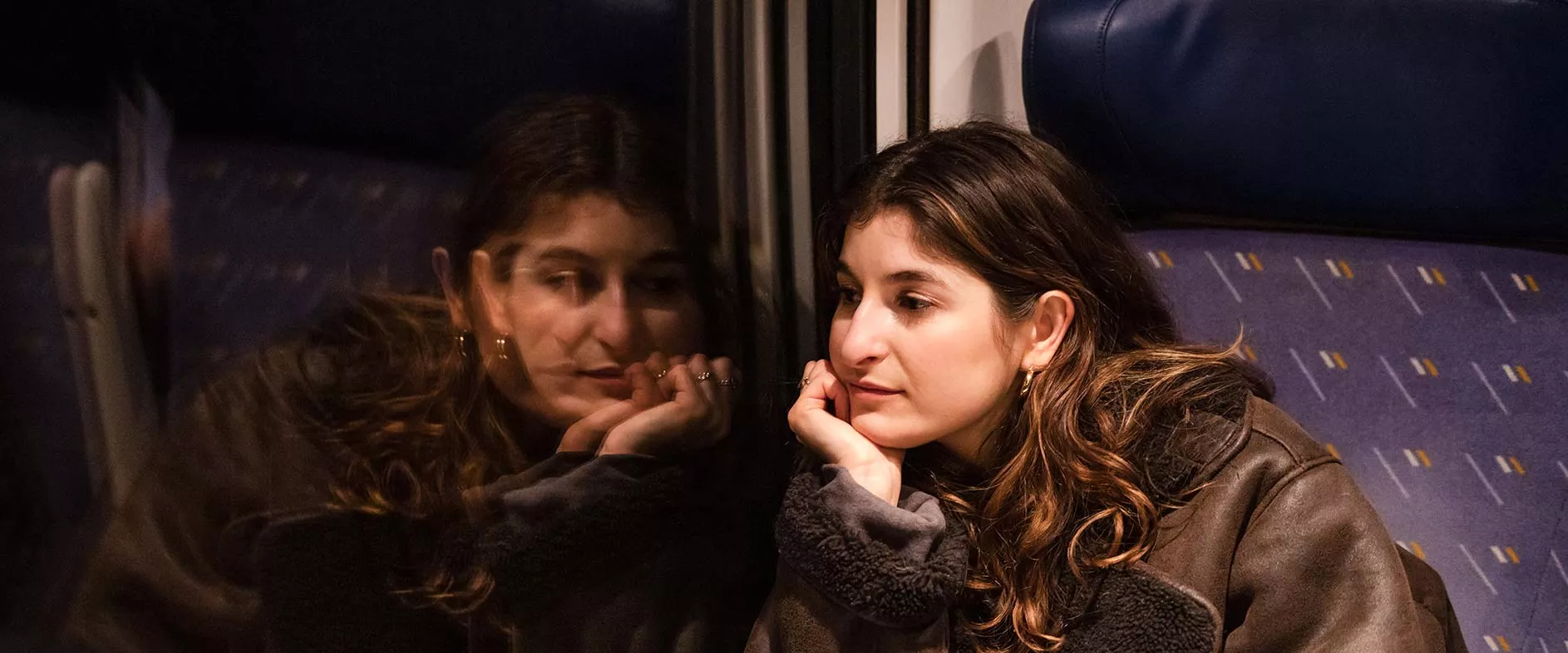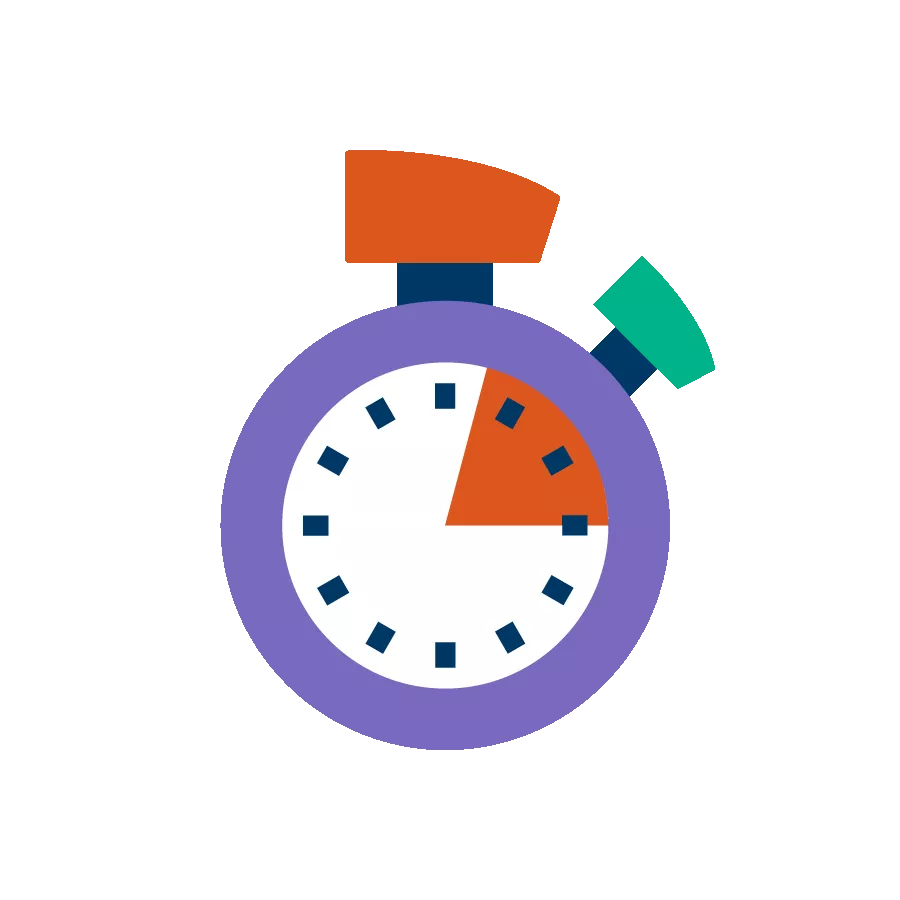
Preventing sexist and sexual violence in public transport
SNCF Group has implemented a variety of actions and prevention efforts to combat sexist and sexual violence, particularly in stations and public transport. An overview of our efforts.
A daily reality
According to the French government’s National Observatory on Violence against Women, 3,374 acts of sexual violence were reported in public transport in 2024, a 6% rise from 2023 and 9% more than in 2022. Figures show that 44% of attacks were in the Paris region1 and 91% of all victims were women.1 For the women who travel through our stations, on our trains and on public transportation, the threat of sexist or sexual harassment is a daily reality.
Fighting sexual assault
It’s a top priority for us. And it’s why SNCF has adopted several measures to fight and prevent aggressions.

42%
of sexual assault victims in the Paris region were attacked in the rail network1

3.5
million passengers are served by the Transilien network each day

6,000
Transilien employees fight incivility every day
Actions in the Paris region
2024 statistics published by the police and national gendarmerie confirm that 44% of victims of sexist and sexual assault live in the Paris region. For several years now, we’ve been partnering with Île-de-France Mobilités and RATP to implement measures to fight this violence.
Stepping up our anti-harassment measures
1,000 additional employees
We’ve expanded the human presence across the entire network by 50%. Backed by funding from Île-de-France Mobilités, nearly 1,000 additional employees have been added at SNCF, RATP and the OPTILE bus network.
Better training
In 2017 we worked with MIPROF2—a French government initiative to protect women victims of violence—to launch a training programme focusing on customer relations at stations and on board trains for Rail Security officers and station staff. The goal is to make them better able to prevent and contain violent situations—and to support, listen to, advise and guide victims of violence.
New initiatives since 2021
- an awareness-raising campaign made security staff on Transilien lines more sensitive to sexual assaults
- RATP and Île-de-France Mobilités set up a new programme to provide more support for victims
- SNCF created a new managerial position dedicated to fighting sexist and sexual assaults
- SNCF’s Railway Security force formed teams of civilians to fight harassment and encourage people to intervene in real time
- Special access to the Stand UP digital training courses launched by Fondation des Femmes was given to Transilien customers who subscribe to the newsletter
- The e-learning module “Fighting sexist and sexual harassment on public transport” was rolled out to all Transilien customer service agents
- Exploratory walks were conducted in stations and on Transilien trains to improve the sense of security in collaboration with our female passengers
- Awareness campaigns were organized for customers, in stations and on board, in order to communicate about hthe ways to prevent sexist and sexual harassment in transport, as well as the ways to alert, using materials such as cards and flyers.
Video surveillance
There are over 80,000 video cameras operating in the Paris region’s transport system. All metro stations, railway stations, buses and trams are now video protected, and all railway and metro trains will eventually be.
Boosting efficiency with a dedicated centre
Since 2022 a regional coordination centre for operational safety has brought together all security staff in the Paris region—police, gendarmes and operators. Île-de-France Mobilités funded this €8.5 million project.
24/7 hotline
There is a single number to call to report sexist and sexual violence: 3117. Within a few seconds, your report will be received by an operator at a 24/7 call centre. You can also contact us by sending an SMS to 31177 or using our Alerte 3117 smartphone app.
How to use 3117
If you’ve witnessed an assault or been attacked or harassed yourself, including sexual violence, use the emergency number as follows:
- 31 17: Dial 3117
- 31 17 7: Send an SOS alert via SMS to 31177
- 31 17 Alert app: use the mobile app (available for iOS and Android) to send a discreet alert.
- Île-de-France Mobilités app: Press the “31 17” button on the app’s home page.
- Emergency call boxes: these are available in all SNCF and RATP rail and metro stations, and let you raise the alarm immediately.
Whichever option you choose, an operator will answer, notify security agents or emergency services, and guide you through the procedure, 24/7.

3117
the number to call to report any dangerous situation

Between 5,000 and
7,000
calls are made to 3117 each month

1,415
personnes mises en cause pour violences sexuelles dans les transports en 20241
On-demand stops for night buses
This service, developed by Île-de-France Mobilités, allows passengers to get off their night bus between two stops on the same line after 10.00 pm.
Stand Up training
The Stand Up initiative—launched by L’Oréal Paris, the NGO Hollaback! and Fondation des Femmes in partnership with SNCF, RATP and Île-de-France Mobilités—raises awareness of harassment and trains everyone to respond effectively. The training courses are online.